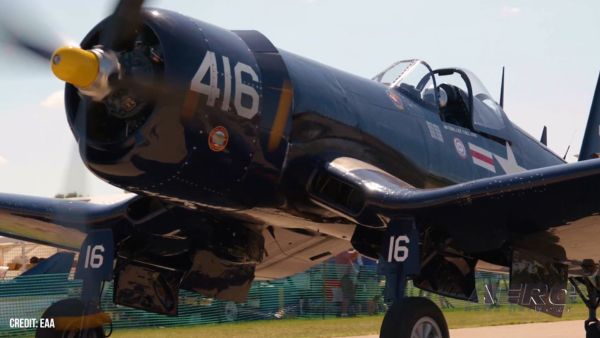by ANN Senior Correspondent Kevin "Hognose" O'Brien
GETTING TYPED: Pilot slang for achieving
the type rating necessary to fly a heavy or turbine
aircraft.
We at Aero-News have been following the progress of Embry-Riddle
Aeronautical University's Commercial Airline Pilot Training program
(CAPT) program for a while. Everyone at the program from director
Paul Woessner (a one-time lighter-than-air record setter, now
trying to teach an old university new tricks), through the
instructors, to the students has impressed us. Now we can tell you
that CAPT Cadet Charles "Chuck" Allen has successfully completed
his MD90 Type Rating by passing a comprehensive checkride with an
FAA examiner. Allen is the first ab-initio cadet to make it to this
point, although his five classmates in the initial class are right
behind. Allen came to CAPT in August of last year (2003) with
exactly zero hours of flight experience, but a desire to change
careers. Two pilots from the first experienced-pilot class have
previously gotten their type ratings, but the heart of CAPT is the
ab-initio program, so this is a very significant milestone for the
program and for the university.
This checkride is no piece of cake. It runs several hours and
gives an airman a good workout. Because it was Allen's initial type
rating, he had to pass every item to ATP standards (no waivers). He
doesn't get an ATP rating for one reason only: even though he
performed to ATP standards, he doesn't have the requisite 1,500
hours. The good news is that Allen will be eligible for the ATP
rating as soon as he meets the minimum flight experience standard,
he has the rating in his pocket, so to speak.
"This was no 'squeaker,'" Gary Morrison, the Program Manager for
CAPT's FAR 142/MD90 Program, told staffers in an email. "Chuck flew
this ride like a true professional."
CAPT, the Commercial Airline Pilot Training program, is an
ab-initio training program, meaning that carefully selected
candidates come in with zero flight experience and are trained from
the outset with a view to placing them in airline pilot positions.
The program, which was established in close coordination with the
sort of regional airlines that might be interested in hiring CAPT
graduates, does not compete with the university's flagship
undergraduate Aeronautical Sciences program; CAPT applicants must
already have college degrees. They also do not study subjects not
directly related to aviation, unlike the students in the regular
Bachelor's Degree program.
A typical CAPT student, Chuck Allen for instance, will graduate
with a Commercial Pilot Certificate with MEL and Instrument
privileges and, of course, a type rating in the modern
glass-cockpit MD-90 variant of the DC-9. The students, called
"Cadets" by CAPT, earn their type-rating in a full-motion MD-90
simulator on the Daytona Beach campus, and their other ratings in
Diamond Star DA-40s and Piper Seminoles. (CAPT is acquiring DA-42
Twin Stars to replace the Seminoles, and is upgrading the DA-40
fleet to glass cockpits -- future CAPT program graduates could
conceivably never sit in front of a panel full of steam gages).
 Aero-News: Quote of the Day (04.28.25)
Aero-News: Quote of the Day (04.28.25) ANN's Daily Aero-Term (04.28.25): Decision Altitude (DA)
ANN's Daily Aero-Term (04.28.25): Decision Altitude (DA) ANN's Daily Aero-Linx (04.28.25)
ANN's Daily Aero-Linx (04.28.25) Airborne-Flight Training 04.24.25: GA Refocused, Seminole/Epic, WestJet v TFWP
Airborne-Flight Training 04.24.25: GA Refocused, Seminole/Epic, WestJet v TFWP Aero-News: Quote of the Day (04.29.25)
Aero-News: Quote of the Day (04.29.25)


